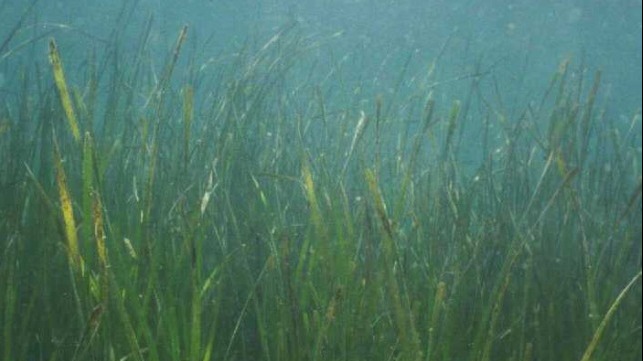MARAD Provides Funds to Study Natural Carbon Capture in Eelgrass

In one of the more unique research projects related to carbon storage, MARAD has awarded $150 thousand to the Port of San Diego to conduct a study on the bay’s eelgrass as a natural means of capturing and storing CO2. According to the port, eelgrass is one of the least-studied coastal ecosystems. More research is needed to understand how much carbon eelgrass can store and how eelgrass can support efforts to mitigate greenhouse gas emissions.
“We need to consider all options in supporting state and local climate planning efforts, and a better understanding of eelgrass carbon sequestration in San Diego Bay could unlock a treasure trove of information and possibilities,” said Port of San Diego Board of Port Commissioners Chairman Michael Zucchet. “This study and partnership with MARAD is part of the port’s holistic approach to mitigating greenhouse gases and helping us meet State requirements and the goals we’re setting in our own Maritime Clean Air Strategy.”
Eelgrass and other coastal “blue carbon” ecosystems have a unique ability to rapidly capture and hold large amounts of carbon dioxide in their plants and soils. Like all plants, eelgrass absorbs carbon dioxide and produces oxygen. Unlike land plants though, eelgrass is submerged in salt water, which prevents the release of CO2 back into the atmosphere. The carbon is trapped in the eelgrass plants and soils for thousands of years. Even though eelgrass habitats cover a small fraction of the area forests on land do, according to researchers it can store carbon at rates 30 to 50 times greater than forests.
The San Diego Bay supports 17 percent of all eelgrass in the state and half the eelgrass found in Southern California. The one-year study will assess how much carbon is stored in San Diego Bay’s eelgrass and how much carbon eelgrass will continue to capture into the future. Information from the study will help the San Diego region better understand the carbon sequestration benefits of eelgrass and how restoring or enhancing eelgrass could help mitigate greenhouse gases.
“MARAD is very pleased to support projects such as this one that will advance the research needed to support attainment of the ambitious goals for decarbonizing the maritime sector set forth by the Administration,” said Lucinda Lessley, Acting Maritime Administrator. “We look forward to seeing the results of this work and will also provide vital information to support natural habitats.”
The funding is being provided by the United States Department of Transportation’s Maritime Administration’s META program. The program promotes the research, demonstration, and development of emerging technologies, practices, and processes that improve maritime industrial environmental sustainability.
